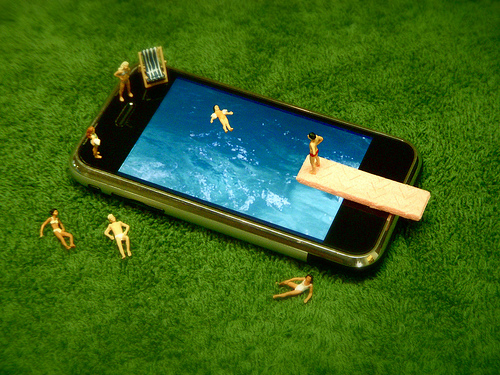As a parent you may suspect a lack of physical fitness in your child because of all the time he spends cozied up to the computer or Xbox (unless, perhaps, they are playing with a virtual reality headset and moving around the room at least). Maybe when you suggest outdoor play or indoor exercise they moan Do I have to, mom? I’m in the middle of a videogame with my friend!
Your parental prerogative allows you to force them outside or into action, but notice the covetousness this creates in the child’s mind if that is all you do. They begin to imagine videogames as the most valuable use of their time and turn play and physical activity into a chore. Engaging them in real physicality is vital to our children’s health. Don’t let technology make your child’s body seem superfluous to them.
A two-step approach to ameliorate this negative distinction in the child’s mind between technology and exercise is first to create the expectation in your home that videogames will be limited and then to create incentives for the child’s physical activity, exercise, or play.
After you have prayed and decided about the matter, talk with your child about how much videogame time each day or week is allowed in your family. Then remind them of the value of doing other things—they simply may have forgotten given the siren song of the video screen.
If you have multiple children, turning off or putting away the technology and pleasantly insisting they go into the backyard or with you to socially distance at the park may be enough to initiate an atmosphere of fun that will get them moving. If you have one child and no neighborhood friends (or families you are cohorting with during the pandemic), tactics may need to change. It may be more effective to have various play equipment that encourages solo physical exercise: balls, nets, scooters and bikes, etc.
In any case, it is about training them to recognize that you are reasonable in your insistence that they participate in daily play or exercise. That it is so important you are going to help them have fun in the process. That you are going to find your own ways to participate (at least on some days, when their enthusiasm is flagging). That you will notice them for the effort they are making. Who doesn’t like to be noticed?
If you send them outside, perhaps step outside with them while they get established in a game of tag. If you have an only child, shoot a few baskets until the child gets engrossed in the pastime himself. If you are often away from home for work or other obligations, include the babysitter in the process. If they are cynical about needing to play, empathize with them: I know, sometimes I’d rather play a game on my iPhone than take a walk, but I know that exercise is so important for my body to be happy!” Sincerity—and not scolding—is a more effective inducement to exercise.
If the child earns recognition from you for their non-videogame activity, they are more likely to value it themselves. Acknowledge and ask about their success at play. When you notice and praise that effort, and help them make goals accordingly, they will take it more seriously themselves.
And, over time, your effort can turn into their lifelong awareness of the role of movement in a happy, healthy life.
Creating incentives for a child’s physical activity through your own parental involvement can help that child forge an appreciation for exercise. It will bring you both closer, and it will distance them from gaming. But the key is helping them see the value—over time—of prioritizing their health over their technology-based entertainment. And, by magnifying your own involvement in their choices, you create a picture of health that becomes meaningful to them.
Photo ![]() JD Hancock via Compfight
JD Hancock via Compfight

